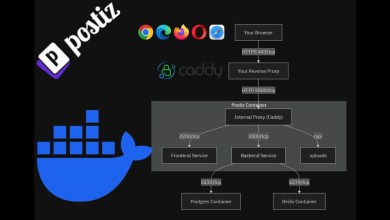proxmox k3s p4 – sealed secrets
# Security
## Problem
“`
kubectl create secret generic test-secret –from-literal=key=value -o yaml –dry-run=client | tee test-secret.yaml
“`
– secret from storage part
– show decoding secret
## Solution – Bitnami Sealed Secrets
– Asymetric crypto to encrypt secrets (from anywhere) and commit them to git for gitops that only the controller can decrypt
–
### SealedSecrets controller (decryptor)
– Install the kubernetes controller which has a private key for decryption (unsealing) and creates secrets from SealedSecret types.
– clone repo to your cluster and create folder in the repo
– create folder for sealed-secrets
“`
helm repo add sealed-secrets
helm template sealed-secrets –include-crds -n kube-system –set-string fullnameOverride=sealed-secrets-controller sealed-secrets/sealed-secrets | tee seal-controller.yml
“`
– `–key-renew-period=0` set to `0` in `Deployment.spec.template.spec.containers[0].args` for no renews required
– commit and push
### `kubeseal` Client (encryptor)
– Only has public key so it can only Encrypt (seal) but not decrypt.
– Creates “SealedSecret” resources.
#### Basic (server) Use
– Add the following to `/etc/nixos/configuration.nix` and run `nixos-rebuild switch
“`
environment.systemPackages = [
pkgs.kubeseal
];
“`
– Test by pushing this to gitlab:
“`
kubeseal –format=yaml –namespace default -f ./test-secret.yaml | tee sealed-test-secret.yaml
“`
– note: namespace is required
#### Client Use
– Install with `nix-env -iA nixpkgs.kubeseal’
– Create `test-secret.yaml` on the client with `kubectl create secret generic test-secret –from-literal=key=value -o yaml –dry-run=client | tee test-secret.yaml`
– Public key Certificate should be committed to git
–
– `kubeseal –fetch-cert | tee sealcert.yml`
– you can use the env variable `SEALED_SECRETS_CERT` instead of the `–cert` flag
“`
kubeseal –cert file.pem –namespace default | tee mysecret.yaml
“`
#### Client Use
#### Scopes
– `strict` is default – see github
– set at CLI or annotations
These are the possible scopes:
– __strict (default)__: the secret must be sealed with exactly the same name and namespace. These attributes become part of the encrypted data and thus changing name and/or namespace would lead to “decryption error”.
– __namespace-wide__: you can freely rename the sealed secret within a given namespace.
– __cluster-wide__: the secret can be unsealed in any namespace and can be given any name.
## Pre-commit hooks
`vim .git/hooks/pre-commit`
“`
if ! $(git diff-index –diff-filter=A –quiet -G ‘^ *kind: *Secret’ HEAD); then
echo ‘ERROR commit rejected because the following files contain kubernetes secrets:’
echo
git diff-index –name-only –diff-filter=A -G ‘^ *kind: *Secret’ HEAD | perl -wnle ‘print ” $_”‘
echo
echo “Consider converting secrets to bitnami SealedSecrets using:”
echo
git diff-index –name-only –diff-filter=A -G ‘^ *kind: *Secret’ HEAD | perl -MFile::Basename -wnle ‘print ” kubeseal –namespace default -f $_ -w ” . dirname($_) . “/sealed_secret_” . basename($_)’
exit 1
fi
“`
– `chmod +x pre-commit`
[ad_2]
source


